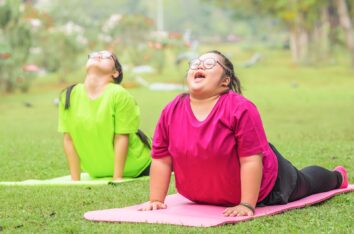5 Ways to Improve Self-Regulation and Become A Better Leader
Self-regulation is one’s ability to regulate themselves in a better way according to the demands of the situation. People who have the habit of self-regulation can easily keep an optimistic view about others and the world around them. They are also very good at identifying opportunities and utilizing them to the maximum. It is because they engage in open communication, have powerful motivation, and are clear about their values and principles. People with good self-regulation skills can also be good leaders.
Looking at individuals with poor self-regulation skills, it becomes clear that they engage in reckless spending, driving, overeating, law-breaking activities, and procrastination. Hence, such people cannot be better leaders at their workplace or be good role models at home.
Mindfulness Enhances Self-Regulation Skills
Mindfulness is about staying in the moment and reducing the stress that comes with worrying about the past and the future.
Different signs that highlight the need for mindfulness are:
- Struggling with unpleasant emotions
- Getting distracted easily
- Lack of self-compassion
Looking at it in the context of leadership, leaders have increased responsibilities that come with stress and a lot of unpleasant emotions. When a leader uses a mindfulness strategy to tackle negative emotions, it will significantly help in managing the onset of anxiety.
According to 2020 research, mindfulness significantly helps in emotional regulation that boosts leadership skills.
In accordance with a 2019 research, mindfulness impacted leadership ability indirectly through trust. It meant that mindfulness enhanced a leader’s problem-solving ability, empathy, and emotional regulation. The presence of these qualities improved the relationship between the leader and the team members. Hence, the leadership skill got an indirect boost through mindfulness.
Gratitude Improves Self-Regulation Skills
Gratitude is about being thankful for the things that one possesses and it has many advantages like better emotional, physical and mental health.According to 2020 research, gratitude helps in creating a positive impact at a workplace. Moreover, in a 2021 research, it was reported that writing gratitude letters resulted in greater relationship satisfaction, happiness levels, sense of wellbeing, and meaning of life. It can be concluded that a leader should practice gratitude in order to boost his self-regulation skills that promise better leadership.
Gratitude is perceived to be an imperative leadership skill as it enhances the environment of an organization. According to a 2017 hbr study of 7600+ managers, it was found that 44% of them believed giving negative feedback was discouraging whereas only 21% avoided providing negative feedback. The surprising statistic was that 37% of managers thought giving negative feedback was not a problem for employees. It implied a damaged relationship between the leaders and subordinates which also damaged their performance at the workplace. Hence, to boost the performance, motivation, and attitude of employees' leadership backed up by the habit of gratitude is crucial.

Boost Through Cognitive Reframing
Cognitive reframing/reappraisal means looking at a situation from a different angle for self-regulation.
For example, a leader should look at a difficult situation as an opportunity rather than a burden. The following questions can prove to be helpful:
- What is an alternative explanation for this situation?
- How can this difficult situation help one in the long term?
- What different skills do I need to learn to solve the problem?
According to 2014 research, cognitive reappraisal has been shown to improve symptoms of anxiety, and depression which boosts life satisfaction. It means that when a leader is psychologically healthy, the leader can better manage the team members and be more productive in an organization.
Another study of 2008 showed cognitive appraisal leads to strengthened adaptability. Adaptability is about being open to new learning and experiences; it also means successfully modifying one’s behavior, thoughts, and emotions. When a leader successfully strengthens adaptability, the team members try to learn and improve themselves according to the leader.
Become a Better Leader by Increasing Self-Awareness
Self-awareness suggests that one knows about their values, goals, motivation, principles, strengths, and weaknesses. There is no doubt that a leader with better self-awareness can lead others effectively than a leader with poor self-awareness levels.
According to 2021 research, self-awareness enhances the ability of authentic leadership. Moreover, it is important to know oneself as an individual as well as who one is in relation to others (to be an efficient leader). Another 2018 study found that leadership potential increased in fresh MBA students when they worked on their self-awareness along with taking professional coaching, learning through reflection, and going through leadership assessment.
How Practical Goal-Setting Makes a Better Leader?
We know that leadership is about guiding and motivating others that require self-regulation. When leaders effectively self-regulate, they can align their behavior, thoughts, and emotions according to the situation. Moreover, they are able to find effective ways to set their goals. One of the effective ways is to use the SMART goals strategy.
SMART goal strategy means making specific, measurable, attainable, relevant, and time-specific goals. All of this is required to create realistic and practical goals for long-term achievement.
As per 2000 research, practical and proper goal setting has been highlighted to be an essential duty for a leader. Another 2002 research showed the benefits of pragmatic goal setting by a leader on employee’s performance, attitude, and motivation.
An Additional Way to Cultivate Self-Regulation
Additionally, yoga meditation is about creating harmony between mind, body, and spirit through physical movements and breathing exercises. The harmony introduces relaxation which lowers stress and anxiety in an individual. When leaders introduce yoga in their daily routine, they are better equipped to deal with the challenges at the workplace. According to a 2020 study, it was found that yoga meditation enhanced self-regulation, pleasant feelings, and self-esteem in the adolescent population. Hence, yoga meditation is one of the best ways for self-regulation.
Wrap up
Self-regulation is a critical skill to become an effective leader in different settings. The techniques listed above (to become a better leader) are not the only ones as there are many. One more technique is yoga meditation which has enormous benefits holistically. One of them is improved self-regulation ability. Furthermore, multiple kinds of scientific research have backed it up. All of the above ways are meant to bring long-term betterment to a leader’s ability.



